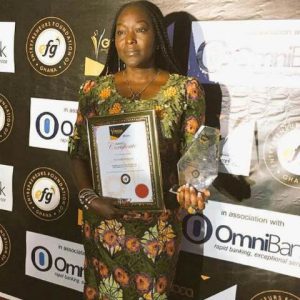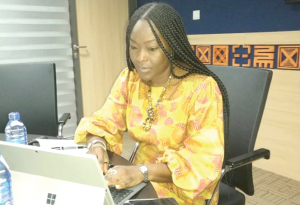
A new report on Ghana produced by the global publishing, research and consultancy firm Oxford Business Group (OBG) indicated that country’s has been a challenging year marked by fluctuating commodity prices, depreciating currency and electricity shortages.
The Report: Ghana 2017 which was launched in Accra considers the balancing act the government faces as it looks to attract investors while also bringing down the budget deficit.
The publication also considers the implications of the landmark free trade agreement signed between ECOWAS and the EU in 2014, giving Ghana and other member states greatly improved access to key European markets.
Other topics explored include Ghana’s push to boost its power-generating capacity through a push of projects, including the construction of a thermal power plant at Aboadze in the Western Region.
The Report: Ghana 2017 contains an in-depth viewpoint by new President Nana Addo Dankwa Akufo-Addo, together with a detailed, sector-by-sector guide for investors.
It also features a wide range of contributions from other leading representatives, including the Governor of the Bank of Ghana Dr Abdul-Nasiru Issahaku, the Commissioner of the National Insurance Commission, Madam Lydia Lariba Bawa, the Chief Executive Officer of West Blue Consulting, Madam Valentina Mintah, and the Acting CEO of the Ghana National Petroleum Corporation (GNPC).
In addition, international personalities, including UK Trade Envoy to Ghana, Adam Afriyie, President of the African Development Bank, Dr Akinwumi Adesina, and the President ECOWAS Commission, Marcel de Souza, gave their views on Ghana’s economic development.
OBG’s Managing Editor for Africa Robert Tashima agreed that 2016 had brought challenges, led by the ‘Three Ds’ of depreciation, dumsor and deficits. “Yet a closer look at key sectors – such as energy, agriculture, telecoms and banking – reveals that an uptick in activity over the coming 12 months is entirely possible,” he said.
“If you look at our first report in 2011, it reflected the excitement and enthusiasm in Ghana at that time when the country experiencing 14 percent growth and oil. There was a lot of enthusiasm of where the country was going. Obviously, you know that things have changed since then. The outlook for 2017 is not negative necessarily but there are a lot of challenging issues that the new government must deal with”, Mr Tashima stated in an interview at the launch.
On the issues confronting the electricity sector, he noted that there were strategies that had been pursued elsewhere on the continent that were being very successful and might provide a model or a template for Ghana to follow to sustain the power industry.
“Truly, a lot of works have already been done to improve the power industry. For instance the finish-touches on the Gas Master Plan and inflows for the Aboadze Thermal Plant”, Mr Tashima acknowledged.
The Report: Ghana 2017 marks the culmination of 11 months of field research by a team of analysts from OBG. The publication assesses trends and developments across the economy, including macroeconomics, infrastructure, banking and other sectoral developments.
The Report: Ghana 2017 which is the sixth edition has been produced with the Ghana Investment Promotion Centre. Contributions have also been made by Liberty Capital, Deloitte and the law firm AB & David. The publication is available in print or online.
By Masahudu Ankiilu Kunateh, African Eye Report





